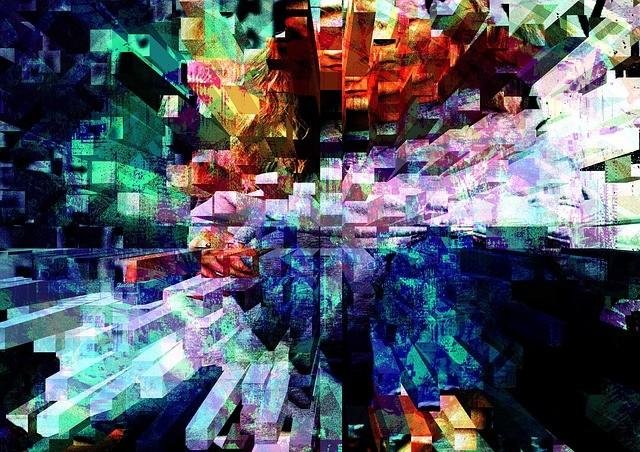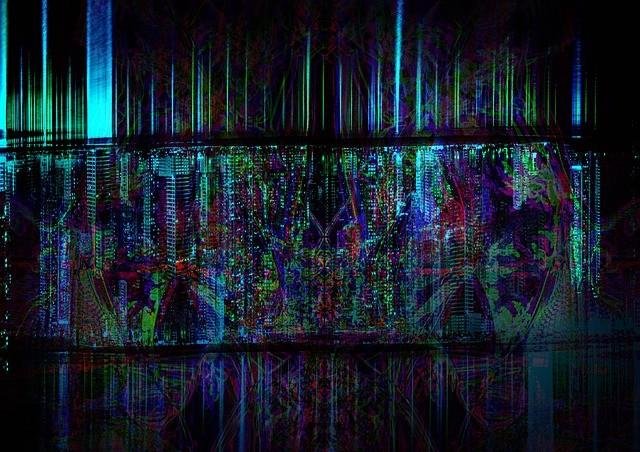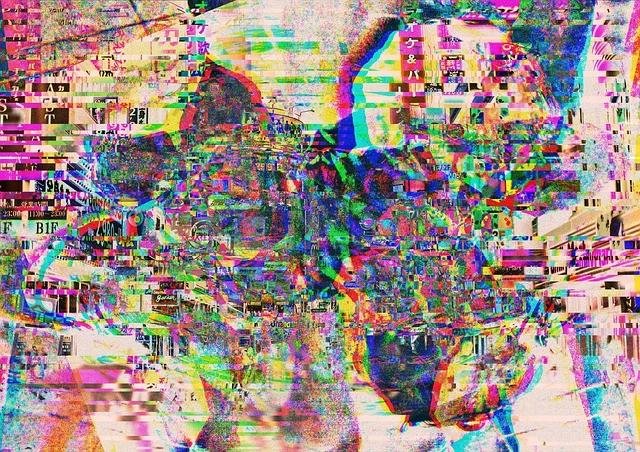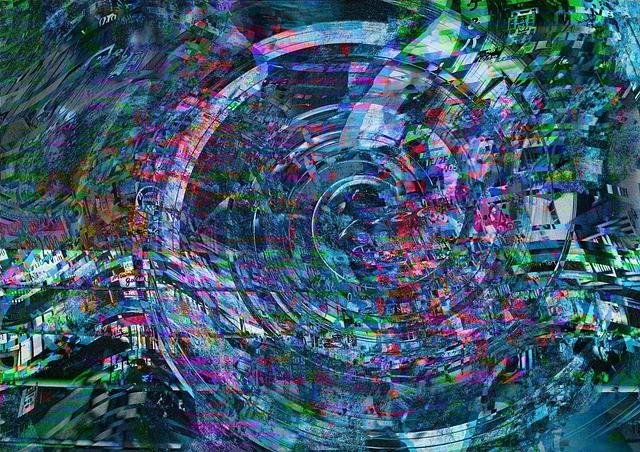China's Social Credit System
Introduction:
As many of you know, I normally stick to writing self-development, self-help type material, intermixed with occasional poetry, art, and photography.
This topic, however, stuck out, and not because of the Black Mirror episode "NoseDive", or George Orwell's Nineteen Eighty-Four, but because of the impact this could have not just on 1.4 billion human beings, but on the rest of the world as well.
The questions it raised for me were:
Is this a global trend?
Are we headed towards a New World Order?
What will the future look like?
Is this the legacy which we are leaving our children?
And, most importantly, what can we do?

Image by Yatheesh Gowda from Pixabay
The vision:
To modify behavior,¹ increase trustworthiness¹ and to promote good citizenship.⁵
To protect citizens from fraud,⁴ ⁵ counterfeit products,⁴ peer to peer lending,² and public health failures.⁴
The idea is to create more transparency about companies and individuals that are breaking the law or are non-compliant with official obligations and incentivize the right behaviors with the overall goal of improving governance and market order. The Chinese Communist Party intends the social credit score system to “allow the trustworthy to roam freely under heaven while making it hard for the discredited to take a single step.”⁵
How it will work:
Businesses are "given a unified credit code"¹ and "citizens will have ID-linked codes."¹
Data on companies and individuals is then collected.
Data that indicates non-compliance with legally prescribed social and economic obligations and contractual commitments are flagged up and aggregated on a government-wide level to determine the trustworthiness of companies and individuals. Such a trustworthiness score can fluctuate based on actions; going up for good deeds and can go down for negative actions.⁵
Examples and Methods of Data Collection:
-Images gathered from China’s 200 million surveillance cameras and advanced facial recognition software⁵ ¹
-Data collected by private companies¹
-Data collected by government agencies⁵
-Citizens reporting on other citizens²
-Financial records⁵
-Credit History⁵
-Health Records⁵
-Tax payments/evading taxes⁵ ⁴
-Legal matters⁵
-Social Media activities⁵
-People you associate with⁵
-Endangering national security or unity¹
-Posting fake news online³
-Shopping Habits⁵ ¹ ²
-Misbehaving on a train¹
-Standing up a taxi¹
-Donating to charity¹
-Stealing electricity¹
-Jaywalking¹
-Buying too many video games³
-Time spent playing video games¹ ⁵
-Cheating while playing video games⁵
-Whether or not someone is a parent¹
-Purchasing diapers for a child⁵
-Purchasing alcohol⁵
-Traffic violations⁴ ⁵
-Driving through a red light¹
-Bad driving³
-Causing disruption⁵
-Volunteering⁴
-Donating blood⁴
-Attracting investments⁴
-Neglecting to care for elderly parents⁴
-Smoking in non-smoking zones³
Examples of rewards:
-Access to community welfare programs⁴
-Free medical checkups⁴
-A social credit score above 650 at one hospital allows an individual to see a doctor without lining up to pay⁵
-Discounted energy bills⁴ ⁵
-Better visibility on dating sites⁵
-No deposits required on rental properties⁵
-No deposits required on Bicycle rentals⁵
-Better travel deals⁵
-Travel applications processed more quickly³
-Better interest rates at banks³
-Simplified process with bureaucracies¹
Examples of Punishments:
-Prohibited from enrolling children in a school of their choice⁵
-Prohibited from buying train tickets⁵
-Prohibited from buying plane tickets⁵
-Inability to purchase a new home⁵
-Prohibited from renting an apartment⁵
-Lose government subsidies⁴
-Inability to purchase high-quality goods⁵
-Barred from government jobs⁴
-Blocked from dating sites⁵
-Getting your dog taken away³
-Throttling your internet speeds³
-Stop you from getting the best jobs³
-Banned from some holidays and hotels³
-Being publicly named as a bad citizen³
-Extra paperwork or fees¹
There will also be a Blacklist:
-For people who refuse to pay a government fine¹
Apparently,
with the government system, if you want to be removed from a blacklist, you can either pay your bill or appeal to the court, says Jing Zeng, a researcher at the University of Zurich.¹
However, it would appear that this may not necessarily be the case, particularly if you are a journalist, activist, or lawyer who speaks up against human rights violations, or government corruption.¹ ⁷

Image by Yatheesh Gowda from Pixabay
When will it be implemented?
As it stands, there is currently no official nationwide social credit system in place. The idea of social credit was first introduced in 2007.¹ In 2010, the first Pilot program was created.⁵ In 2014, plans were officially revealed, and the first opt-in social experiments were launched.¹ There are currently at least 70 different experiments running in at least 48 regions across China.²
According to Samantha Hoffman, a non-resident fellow at the Australian Strategic Policy Institute, 2020 marks the end of the planning period. The goal is to implement a mandatory nationwide system shortly thereafter.¹
However, there is some conflicting information:
There is some question whether or not these social experiments are truly operating as opt-in rather than mandatory.
The current detention of up to 1 million people in facilities in the Uyghur Autonomous Region (Xinjiang) serves as a prime example.⁷ ⁶ ⁸ It is highly doubtful that these people willingly chose to be incarcerated in what has been described as concentration camps.⁸
This is further evidenced by the government's promise in the document: Planning Outline for the Construction of a Social Credit System (2014-2020), which states that:
All of the social credit scores for its 1.4 billion citizens will be publicly available by 2020. At that time, there will be a searchable file of every Chinese citizen that represents all the data collected from public and private companies to track their social credit.⁵
How can this be possible if the current pilot projects and social experiments are opt-in only, and confined to specific areas?
According to a recent Forbes article, “All companies with a Chinese business license, a requirement for any company operating in China, were brought into the social credit system at the beginning of 2018.”⁵
Again, this would imply that the pilot programs are neither opt-in nor confined to certain areas only.

Image by Yatheesh Gowda from Pixabay
Why we should be concerned:
Privacy:
According to the government’s document, Planning Outline for the Construction of a Social Credit System (2014-2020), all of the social credit scores for its 1.4 billion citizens will be publicly available by 2020. At that time, there will be a searchable file of every Chinese citizen that represents all the data collected from public and private companies to track their social credit.⁵
How will this impact the safety of citizens? Can this information be used in malicious ways? How much information will be in those files? How reliable and accurate is the data that is being collected? What if there are errors? What recourse will citizens have to correct errors, or speak up against any injustices?
Behavior modification:
1
"Up to one million people are reportedly being arbitrarily detained in transformation-through-education facilities in Xinjiang, with the aim to replace religious beliefs and aspects of cultural identity with political loyalty for the state.”⁶ ⁷ ⁸
Since when does being of different ethnicity, culture, or religion require behavior modification? What implies that these citizens are not trustworthy, or good citizens? Who decides what is acceptable and unacceptable?
How can we take away people's right to practice their religion? Does the government have the right to force restaurants to stay open? Does the government have the right to restrict access to places of worship? Can we take away a person's right to fast? What constitutes an abnormal beard?!⁶
2
"Last month, when a man was stripped of 950 out of 1,000 points—having been docked 10 points every time he petitioned the government for help with his mother’s medical dispute."⁴
How can someone be punished for asking for help, for his mother? Isn't that a basic right? We should all be able to ask for help when we need it? The government may choose not to help depending on the circumstance, but we should have the right to at least ask without fear of reprimand.
3
There are no genuine protections for the people and entities subject to the system.¹
Freedom of the Press:
Liu Hu is a journalist in China, writing about censorship and government corruption. Because of his work, Liu has been arrested and fined — and blacklisted. Liu found he was named on a List of Dishonest Persons Subject to Enforcement by the Supreme People's Court. "There was no file, no police warrant, no official advance notification. They just cut me off from the things I was once entitled to," he told The Globe and Mail. "What's really scary is there's nothing you can do about it. You can report to no one. You are stuck in the middle of nowhere."¹
This makes one wonder how many more people are not speaking up against the system for fear of reprimand?
What kind of society doesn't allow Free Press? What kind of society doesn't allow people to question things?
If no one can question or challenge anything, what safeguards are there against large-scale corruption?
Regulations that can be largely apolitical on the surface can be political when the Communist Party of China (CCP) decides to use them for political purposes.¹
Potential corruption is a serious concern with the implementation of this system. Imagine how this system could be used to control people beyond good morality.
Imagine how this system could be used to further various nefarious agendas.
Access to Education:
A number of students were barred from attending schools and universities because of their parents’ low credit scores.¹⁰
The system has not even been officially launched and already students have been barred from education. What is worse, it has nothing to do with their own social credit score. Rather, they are being punished for the poor score of one or both of their parents.
What is interesting to note is that this system is supposed to curb peer to peer lending. Yet, what can people do when they can no longer access financing because of a poor social credit score?
In an emergency, they will have to turn to peer to peer lending. Will this not open the potential for even harsher peer to peer lending terms?
How will people be protected from multigenerational debt and abuse from peer to peer lending when the system itself punishes children for the actions of their parents?
Instead of solving peer to peer lending, it appears that the issue is further compounded.
Impact beyond China:
In April 2018, the Civil Aviation Administration of China (CAAC) sent letters to international airlines demanding they show Taiwan as part of China, saying the government would "make a record of your company's serious dishonesty and take disciplinary actions" for any that didn't comply; they all eventually did. The system used to pressure the airlines was a pilot of the Civil Aviation Industry Credit Measures, which is part of the official social credit system.⁵
This is an example of China furthering a political agenda using a social credit system.
If you're not aware, Taiwan has its own president. A large percentage of residents of Taiwan consider themselves Taiwanese (not Chinese) and consider Taiwan its own country.⁹
Further considerations:
Some survey results from China have been published that favor the system. However, either the information of which pilot project was surveyed, the details of that project, the sample size, or how the data was collected is missing.
We cannot measure the entire system from a few studies of the more favorable samples. One has to wonder if those projects exist solely for creating good publicity and attempt at making the system look less extreme than it is.
Maybe people won't find one or two projects too intimidating. However, we should at least consider the possibility that the official system will be an amalgamation of most of these projects.
We should also consider that speaking against the system may result in punishment (loss of social credit). This would explain why there isn't more negative press coming out of China about this.
Some very pro-system commentators have admitted to receiving government scholarships, or are working for the party in power.
It goes without saying that those who benefit from speaking positively about the system, would.
At the moment the system is piecemeal — some are run by city councils, others are scored by private tech platforms which hold personal data.³
We know that corporations are profit-driven entities. How good of an idea is it to be mixing:
private corporate interests with government rankings?¹
Imagine the dangers this could pose!
Furthermore,
Such a system could further divide society, creating classes of people depending on their social credit.¹
What will that mean for future generations? What will that mean for the rights of future generations? Does this remind anyone else of Brave New World or Hunger Games?
China's Social Credit System has been described as being:
Simply an extension of Chinese culture’s long tradition of promoting good moral behavior. Chinese citizens have a completely different perspective on privacy and freedom.⁴ ¹⁰
Not only does this statement contradict the very need of this system but we can clearly see the ruling party's perspective on privacy and freedom as illustrated by their treatment of journalists and human rights activists.
Some citizens say it's making them better people already.³
Take a moment to think about what that statement implies: That people need a system of incentives and punishments in order to do the right thing. That they hold no moral compass, nor enough self-discipline on their own to do the right thing. That they need to be coerced into better behavior, they need to be forced into it.

Image by Yatheesh Gowda from Pixabay
What you can do to help:
You can help by spreading information. Many people have never even heard of the Social Credit System (even in China itself). Open up the dialogue on this important topic.
Information is power. Encourage people to seek knowledge and find out for themselves. A substantiated opinion is always more powerful.
Stay apprised of what is happening in China. Remember, no one has a choice as to where they are born. We are all part of the same human family. We have a responsibility to one another. This will impact the lives of more than 1.4 billion people.
References:
Thanks for using eSteem!
Your post has been voted as a part of eSteem encouragement program. Keep up the good work! Install Android, iOS Mobile app or Windows, Mac, Linux Surfer app, if you haven't already!
Learn more: https://esteem.app
Join our discord: https://discord.gg/8eHupPq
Thank you esteem! <3
Your article China's Social Credit System, is very well written @akiroq,
Nice job.
This particular excerpt outlines my thoughts/questions pretty well:
If the citizens have no say over the parameters of the system, as in what is right and what is wrong, then does it not become a control based governance system, based solely on compliance? (Not trust.)
Taking it a step further, we can omit the last part of that sentence and set the focal point towards these two statements:
Modify behavior/Increase trustworthiness.
How could any citizen trust a person or government who's definition of increasing trust is to do so by modifying behavior?
It might only be my opinion, but when you really look at the social credit system, it reeks of control, psychological manipulation, and fear mongering. Trust is the last thing that comes to mind when reviewing this system.
I think if the world doesn't take a serious look at this system, and what it entails, the entire planet will be at risk for this kind of control system. Some countries it will likely be more subtle. Like "Earn points if you tell Alexa she rocks.." Get people hooked and dependent, and a control system can easily be implemented and the majority will accept it.
Thanks for the thought provoking article @akiroq. I hope more Steemian's take the time to read this.
This:
I think if the world doesn't take a serious look at this system, and what it entails, the entire planet will be at risk for this kind of control system.We can already see examples of this being implemented globally. I am really afraid for our future generations. The social credit system (or any such system), is ripe for corruption.
This whole thing reminds me of WW2, the Nazis, the concentration camps and the genocide that followed.
I can't believe that there are people naive enough to support ANY of this or to think this might be a good idea. That makes my head spin!!!
Wow . That is scary.
It really is, especially that so many people have no idea this is happening!
@akiroq You have received a 100% upvote from @botreporter because this post did not use any bidbots and you have not used bidbots in the last 30 days!
Upvoting this comment will help keep this service running.
Thank you for your support.
excellent content, today I learned something new, good information for our growth.
Thank you!